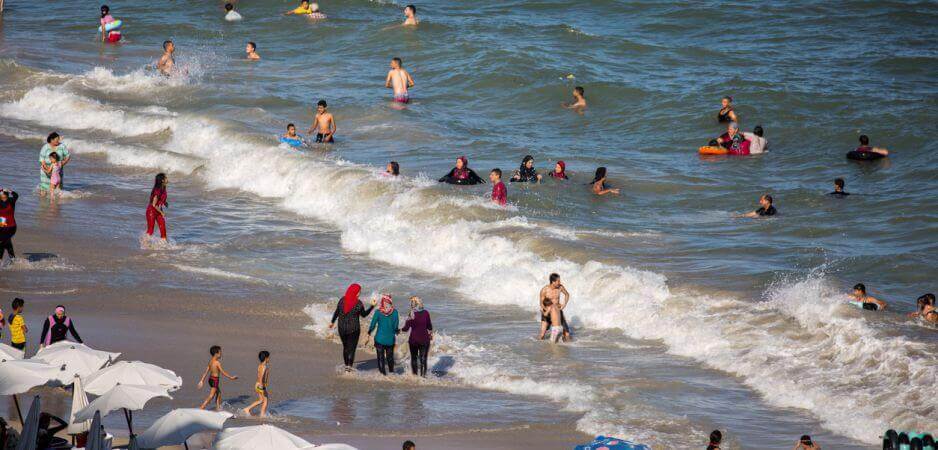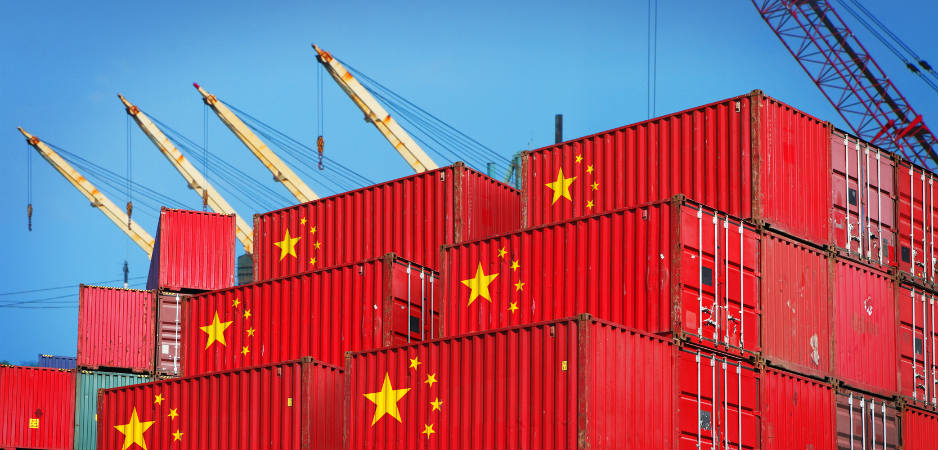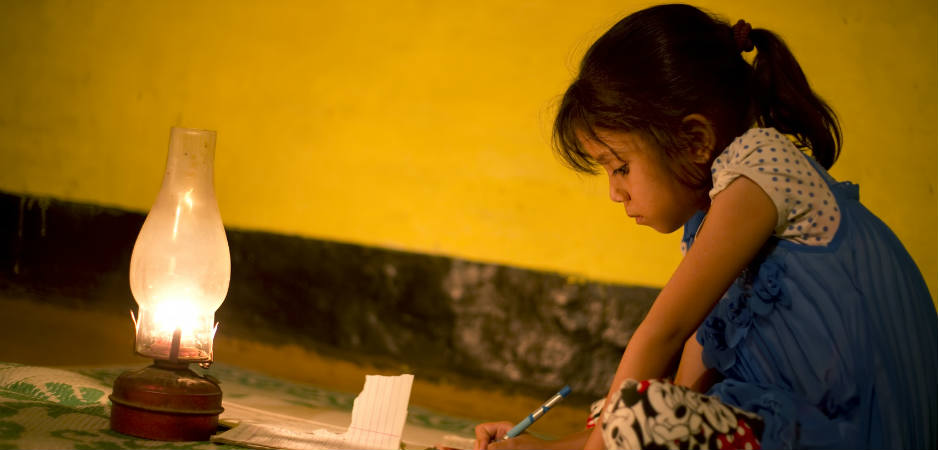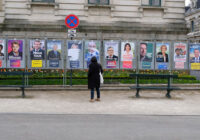France must recognize that bikinis might be better than burkinis, but banning the latter will neither improve security nor liberate women.
Many in France are jumping like cats on a hot tin roof and making much ado about burkinis. This week, the dapper James Creedon from Ireland and his thoughtful English colleague reported on France 24 that Cannes and two other towns banned burkinis on the beach. A fourth town is planning to do the same and the French government has defended these bans.
Before we carry on, what may you ask is a burkini? Simply put, it is a swimming garment for women that covers the whole body. Some call it a swimsuit version of the burqa. It is a bit like a wetsuit except that you wear it not to save yourself from icy waters, but the prying eyes of lustful men.
The burkini is a dress designed for modesty. Conservative and religious individuals and societies have long prized modesty. Not for them the Dionysian revels of unabashed indulgence, these fine souls prefer curbing their desires, ordering their lives and creating a society of restraints. In the villages of northern India, Hindu women cover their heads. In much of the Middle East, the sight of women in a hijab is commonplace. Even in Europe, Catholic nuns can still be seen in coifs from time to time.
Until very recently, even men had to cover their torsos when they went to the beach or swam in pools. The legendary Johnny Weissmuller, whom the Olympic Games website calls “swimming’s first superstar,” won five gold medals in the 1920s in suitably modest attire. It goes without saying that society expected women to dress more modestly than men.
Articles in the nostalgic Victoriana Magazine, the trendy Bustle and the respectable Smithsonian Magazine chronicle the evolution of bathing suits over time. Suffice to say, Europe and the United States have come a long way from bathing machines and bathing gowns. It was none other than France, the land of revolutions, which launched the itsy bitsy bikini revolution. Louis Réard invented this risqué apparel and named it after Bikini Atoll in the Pacific Ocean. Then, this was where the US was conducting atomic tests. In the words of Emily Spivack, Réard thought “this new suit would have the same explosive effect as splitting the atom did on its island namesake.”
Réard turned out to be right. The bikini was scandalous. It was banned in a number of places on the planet. In places like Saudi Arabia and Pakistan, that ban continues. Clearly, the way women dress is a big deal in most societies. Why?
The answer to this question is entangled with people’s deepest values. If they believe life is about modesty, chastity, restraint, obedience and service, then the bikini is indubitably provocative. This author is certainly not alone in almost involuntarily gazing at girls in bikinis. In contrast, women in burqas barely garner a glance. If sex is sin or tinged with sin and Eve’s proverbial desire for an apple led to the fall of man, then bikinis are satanic temptations to lead us astray.
On the other hand, if people believe in joie de vivre or la dolce vita, they might find Catholic injunctions against sex oppressive and ridiculous. The same holds true for Islamic rules of dressing that prescribe modesty for both men and women. Spivack tellingly points out that the modern bikini was present in ancient Rome before the Judeo-Christian faith conquered the city. Other parts of the world have traditions far more scandalous than the humble bikini. This author’s grandmother comes from a clan that built the Khajuraho Temples. These magnificent architectural masterpieces are famous for their erotic sculptures, which have long scandalized conservative Muslims, Christians, Hindus, puritanical atheists and even doctrinaire feminists.
While this author does not agree with Samuel Huntington’s thesis of a clash of civilizations, much of the world is certainly experiencing a clash of values. In France, hedonistic values that celebrate the senses are clashing with traditional norms that prize piety. Burkinis are a classic case in point.
The burkini brouhaha began when a group announced a seemingly innocuous event at a waterpark near Marseille. This private event was scheduled for September 10. It was meant for women wearing a swimsuit that covered their bodies from their chests to their knees. Two-piece swimsuits were prohibited. In other words, burkinis were in, bikinis out. This caused outrage. Politicians from both the left and the right declared this event a threat to France’s haloed secular values.
The event was perfectly legal because a private group can decree dress codes for its members. The Cosmos Club in Washington, DC, the Gymkhana Club in New Delhi and countless other institutions constantly do so. Even licentious night clubs in Las Vegas often ask men to wear leather shoes and bar entry to those in sneakers or flip flops. The issue here was not legality but symbolism. For many in France, the innocuous burkini was a sinister challenge to their way of life. Emotions ran high and the organizers had to cancel their burkini party when they received bullets in the mail.
Like most controversies, this episode has a backstory. In 2009, a French convert to Islam was banned from swimming in a public pool because she was wearing a burkini. Officials cited hygiene concerns as reason for the ban. France followed banning the burkini with a ban on the burqa. In 2011, la grande nation became the first European country to adopt a law prohibiting the complete covering of one’s face in public. With 5 million Muslims, France has the largest Islamic population in Western Europe. Yet most experts estimated that barely 2,000 women wore the now banned burqas or niqabs.
In keeping with this gallant Gallic tradition, the mayor of Cannes, a ritzy town famous for its film festival, frolicking on the beach and a rollicking nightlife, banned burkinis for August. While the veil and the kippah were fine, he argued the burkini was a symbol of Islamic fundamentalism and a threat to the security of his town.
In Napoleon’s Corsica, the mayor of Sisco banned burkinis after a riot broke out between locals and North African immigrants, after the latter reportedly objected to tourists photographing their burkini-clad women. Different versions of the story reveal the same fear of the other that pervades this island. The ban in Sisco aims to prevent the rising tension between locals and immigrants breaking out into another riot.
Laurence Rossignol, France’s minister for women’s rights, has jumped into the fray and supported the bans. She does not see the link between burkinis and terrorism or see burkinis as leading to riots. The feminist minister finds the burkini “profoundly archaic” and the struggle against it a “battle for the emancipation of women.” Rossignol is fighting for the “soul of France” and believes that burkinis “hide women’s bodies in order better to control them.” She has strong views on the subject and, earlier in the year, Rossignol inadvertently kicked off a ferocious row by comparing women who wear headscarves to “negroes who accepted slavery.”
It is obvious that the French ban on burkinis is based on a range of reasons and excites deep passions. More importantly, the ban raises a number of infernally tricky questions.
First, can the state tell people what to wear and what not to? Many argue the state has no right to do so. Yet the state has long done so. Most states in the world do not give people the freedom to walk around naked. There are laws against outraging public decency not only in conservative Malaysia, but also in supposedly devil may care California. What constitutes public decency is notoriously hard to define and changes with time. Besides, when the state bans nudity or women going topless, then the reaction is not quite the same as the ban on headscarves or burkinis.
Is this because by banning burkinis the French state is intruding upon religious freedoms?
Catholic nuns and Muslim women often cover their heads because of religious conviction. Some women may not be terribly religious, but still cover their heads for cultural reasons. For them, the headscarf or even the burkini is a part of their identity. In the liberal and multicultural UK, headscarves, burqas or burkinis do not cause much of a fuss. This is a land where the queen still heads the Church of England but everyone knows she is just a ceremonial figure. This pragmatic land with an unwritten constitution and a long nonconformist tradition has gradually become comfortable with different religions despite no de jure declaration of secularism.
On the other hand, France has been deeply Catholic for most of its history. Huguenots paid with their lives in the St. Bartholomew’s Day Massacre. Reformers had to fight long and hard to separate church and state. The French want to keep it that way. That is why the very first article of their constitution declares that “France shall be an indivisible, secular, democratic and social Republic.” This means that laïcité, the French version of secularism, is fundamental to the state.
Laïcité makes the state neutral toward all religious beliefs. Its operative assumption is that the complete isolation between religious and public spheres is a worthy and desirable ideal. Many argue that this separation of religious and public spheres is a touch too rigid. As the BBC pointed out in 2005, Islam tests French secularism. For many Muslims, their faith permeates all aspects of their lives, and French restrictions on religious expression in public spheres are profoundly antithetical to Islam. The ban on burkinis is one such example and is wrong. Some in France argue that, if devout Muslims have a problem, they can move to the UK or another country where the law is more to their liking.
Second, does banning the burkini enhance security? Sisco’s mayor might argue that the ban on burkinis keeps conservative Muslim women away from the beaches at a charged time. It avoids unnecessary riots that can lead to loss of life and limb. Furthermore, it saves both public spaces and costs to the public purse. Others argue that the ban enrages an already alienated minority living in grim banlieues where riots erupted in 2005.
In any case, France is experiencing new threats to its security. In November 2015, along with Beirut and Baghdad, Paris suffered terrible terror attacks. On July 14, 2016, the day when France celebrates the fall of Bastille and the start of its bloody 1789 revolution, a Tunisian deliberately drove a truck into crowds in Nice killing 85 people. Thereafter, two French Muslims slit the throat of a Roman Catholic priest. Banning the burkini might add fuel to the fire by giving reactionary clerics a new injustice to rail against and boost their recruits. Furthermore, it is generally radicalized young men who launch terror attacks, not women on the beach in burkinis.
France is a deeply divided country. When Manuel Valls, whose parents were Spanish and Swiss, was prime minister, he declared that “tensions that have been brewing for too long and that we hardly mention … territorial, social, ethnic apartheid in our country.” Valls went on to say that people face “social misery and discrimination on a daily basis due to having the wrong name, the wrong skin color, or even simply for being a woman.” The “reality of France,” in his words, includes “mass unemployment, long-term unemployment, youth unemployment, and parents’ anxiety for the future of their children.”
Banning burkinis might make that reality of France uglier for Muslim women from traditional families and conservative communities. They might find this ban a great intrusion into their liberty of belief, faith and worship. It puts them between a rock and a hard place. If they venture to the beach in the burkini, the state might impose penalties on them. If they do not wear a burkini at the beach, they might face friction within their families or ostracism in their communities. They might end up abandoning public spaces altogether to the safety and security of their miserable ghettos.
This raises a third question. Does the burkini ban help women in any way? Rossignol would emphatically say yes. This author has just pointed out how it may force many Muslim women into the confines of their ghettos. Is the suffering of such women by banning burkinis a worthy price to pay to achieve Rossignol’s cherished ideals of women’s emancipation?
To answer this question, we have to examine what Rossignol means by emancipation. Is it women enjoying equal rights and opportunities as men in society? Is it improved career choices and professional advancement? Or is it merely the freedom to dress sexily? France may have been at the forefront of the bikini revolution, but it granted votes to women only in 1944, more than two decades after its inconvenient island neighbor. France is no Scandinavia and has a rich history of everyday sexism. Banning the burkini is not going to improve the chances of the likes of Rossignol to be Madame Presidente.
Bikinis can often be as problematic as burkinis for women. Marcie Bianco argued earlier this year that “feminism’s greatest obstacle in the digital age is the commodification of women’s bodies.” The fashion industry, advertising and Hollywood have defined female beauty in utterly unrealistic and unattainable terms. Even in southern Christian states that oppose abortion, American football games begin with cheerleaders jumping up and down in skimpy clothes. France may have invented the bikini but Brazil has perfected it, enabling plastic surgeons to mint money.
Finally, modesty, chastity and piety provide meaning to many women’s lives. Creedon has produced a lovely documentary on his cousin who left Ireland for Japan in 1935 to become a missionary nun. It serves to remind secularists like Rossignol and this author that women must retain the right to pray to gods we may find ridiculous, keep their heads covered and even wear burkinis on the beach.
*[You can receive “The World This Week” directly in your inbox by subscribing to our mailing list. Simply visit Fair Observer and enter your email address in the space provided. Meanwhile, please find below five of our finest articles for the week.]
Rio Gets Its Taste of Middle East Politics
Regardless of how inclined we are to have politics-free Olympics, it seems like an impossible task.
Politically, the Middle East has been a global hotbed of interstate wars, civil conflicts and authoritarian regimes. Socially, it is home to some of the most restrictive social systems and policies. This has made the region an endless source of controversies.
News surrounding Middle Eastern participants at the Olympic Games has been no exception. Middle Eastern players in Rio have made strong political and social statements that have sparked intense debates in their own nations and the entire world. So far at the Rio Olympics, there have been two critical Middle Eastern moments that hold significance in understanding the region’s political and social realities. In Egypt, a country where the Olympics receive little public attention compared to local football matches, one game was particularly gripping. Days before its actual date, the Judo match between the Egyptian Judoka Islam el-Shehaby and his Israeli… Read more
China is Diving into the Gulf, But For How Long?
It’s getting harder for Beijing to sell the story of non-interference in affairs of sovereign states.
Like most other major global powers that have preceded it, China is becoming entangled in the Middle East. A friendlier region to its interests than its own neighborhood in East Asia, China found in the Middle East an attractive zone for building economic ties. It did not come to the region with much baggage and, as a result, found itself a trusted partner of virtually every state in the Middle East and North Africa (MENA). China’s warm welcome throughout MENA encouraged Beijing to deepen its footprint—especially in the development and energy sectors.
The problem is that the MENA region is currently in tumult. State failure, civil war and regional conflict have all emerged simultaneously and in different ways have threatened the interests of every involved actor. China, for its part, continues to claim that it adheres to its tradition of non-interference… Read more
Winning the Battle for Elephants
In this edition of The Interview, Fair Observer talks to Rob Brandford, executive director of the David Sheldrick Wildlife Trust, one of the world’s leading conservation charities.
The world is a finite resource, with all living organisms competing for space and sustenance. Nature’s grand design has kept the delicate balance of animal populations and ecosystems in place for millennia, before man intervened. The thinking animal possesses an unnatural drive for expansion and destruction and, with over 7 billion people alive today—a nearly 5-billion increase over the past century—the animal and plant kingdoms are losing the battle for habitat.
Because we don’t know the exact number of species that exist in the world, extinction rates are notoriously hard to model. Yet, according to the World Wildlife Fund (WWF), we may be losing species as fast as 1,000 to 10,000 the natural rate. Poaching, industrial fishing, pollution, oil spills, deforestation and effects of climate change are all contributing… Read more
Will Girls Living in Poverty Ever Get an Education?
Are things getting worse for girls?
My mother was a bright girl with a keen desire to learn, but she was not allowed to continue her education beyond Grade 8 as that meant she had to go to school in another town. Eighty years later, Malala wanted to go to school, but she was shot because of it, even though the school was in her own home town. They shot her to stop her from promoting education for girls. The moot question is: Are things getting worse for girls?
The power of educated girls in transforming society is so sweeping that societies resistant to change have attempted to halt change by first stopping girls from going to school. While this is but expected of such societies, the attitude of most of their governments who have made tall promises before the United Nations (UN) to ensure universal primary and secondary school education is disappointing to say the least… Read more
EU Challenges in Post-Brexit Period
The EU is a fragile, voluntary union that can only work if there is a give and a take, says former Prime Minister John Bruton.
There is no denying that the United Kingdom’s Brexit decision is a blow to the European Union (EU). Now, there is a real risk that the remaining 27 EU members will start pursuing national interests at the expense of the common EU interest. If they do, everyone will lose.
The 27 EU states need to act resolutely to strengthen EU-wide democracy, to ensure respect for EU rules, and to show that the EU can do business efficiently with the rest of the world. The European Union is not a monolith. It is a voluntary union of 28 states, with no independent tax raising power. It operates on the basis of rules, which its 28 members must freely respect. If they fail to do so, the EU ceases to mean anything. These rules are… Read more
The views expressed in this article are the author’s own and do not necessarily reflect Fair Observer’s editorial policy.
Photo Credit: Goddard_Photography
Support Fair Observer
We rely on your support for our independence, diversity and quality.
For more than 10 years, Fair Observer has been free, fair and independent. No billionaire owns us, no advertisers control us. We are a reader-supported nonprofit. Unlike many other publications, we keep our content free for readers regardless of where they live or whether they can afford to pay. We have no paywalls and no ads.
In the post-truth era of fake news, echo chambers and filter bubbles, we publish a plurality of perspectives from around the world. Anyone can publish with us, but everyone goes through a rigorous editorial process. So, you get fact-checked, well-reasoned content instead of noise.
We publish 2,500+ voices from 90+ countries. We also conduct education and training programs
on subjects ranging from digital media and journalism to writing and critical thinking. This
doesn’t come cheap. Servers, editors, trainers and web developers cost
money.
Please consider supporting us on a regular basis as a recurring donor or a
sustaining member.
Will you support FO’s journalism?
We rely on your support for our independence, diversity and quality.











